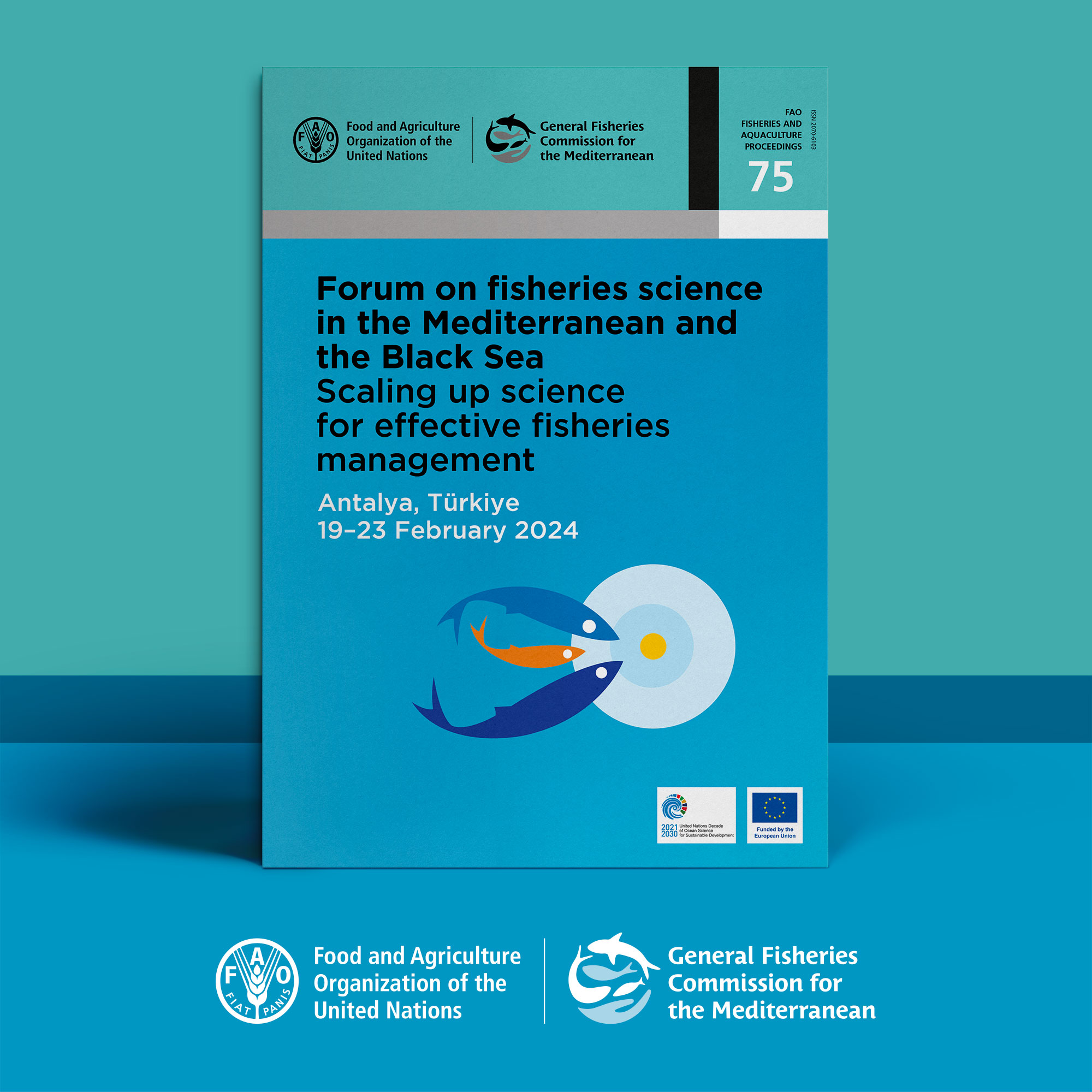Scaling up science for effective fisheries management: read the outcomes and conclusions of Fish Forum 2024

The Forum on Fisheries Science in the Mediterranean and the Black Sea (Fish Forum), organized by the General Fisheries Commission for the Mediterranean (GFCM) of the Food and Agriculture Organization of the United Nations (FAO), is the most important scientific gathering dedicated to fisheries and related issues in the region. This year’s edition – the second - was hosted by Türkiye’s Ministry of Agriculture and Forestry and funded by the European Union.
Outcomes and conclusions of Fish Forum 2024
With five days of keynotes, scientific communications, panels, workshops, side-events and exhibitions, Fish Forum 2024 provided a unique space for experts from 47 countries to discuss the latest developments in fisheries science, along with environmental, oceanographic and socioeconomic research, and how best to apply this growing body of knowledge and tools to the real-world challenges facing the sector in the Mediterranean and the Black Sea. These discussions generated useful inputs towards scaling up science to identify and address existing and emerging priorities and challenges, increase the quality of future advice and inform the management plans of the future.
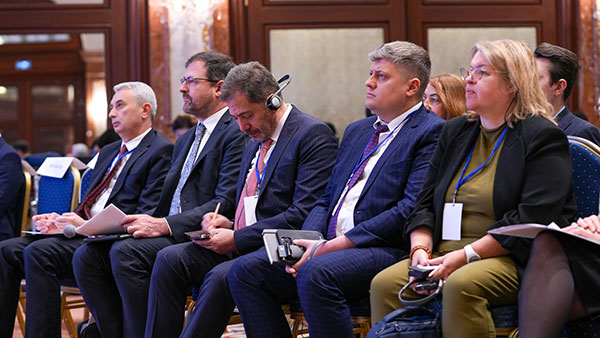
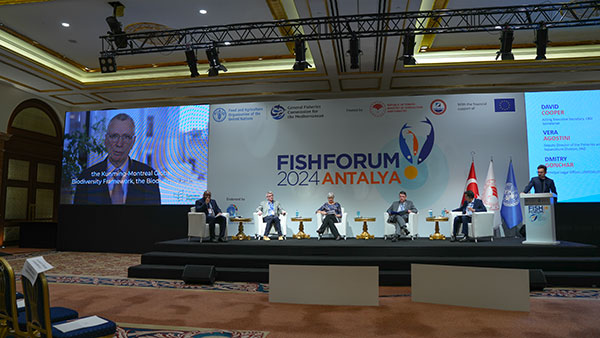
©GFCM/Claudia Amico
Its three theme sessions – better science for better advice, healthy seas and sustainable fisheries, and economic and technological innovation for resilient fisheries – offered the opportunity to define specific scientific, environmental, economic and technological conclusions. The expert roundtables on the science–policy interface, the science needed to address international agreements, and fisheries research in the region, as well as the special events towards the establishment of a GFCM network of experts on climate change and towards collaboration among Mediterranean and Black Sea research institutes, brought forth additional cross-cutting takeaway messages. The identified priorities and conclusions are reported in the Forum on fisheries science in the Mediterranean and the Black Sea: Scaling up science for effective fisheries management – Antalya, Türkiye, 19–23 February 2024.
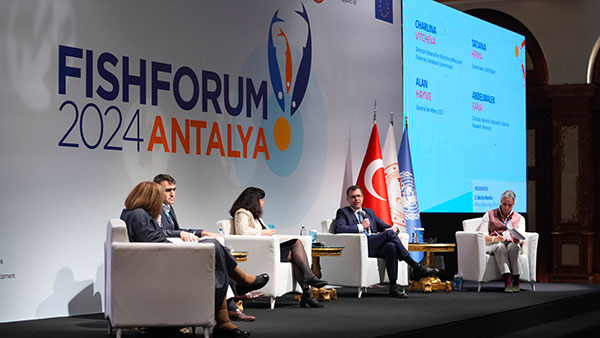
©GFCM/Claudia Amico
Existing and emerging priorities
While the theme sessions, special events and expert roundtables resulted in tailored scientific, environmental, economic and technological outcomes, they also allowed for the identification of broader priorities for fisheries science in the Mediterranean and Black Sea region. In particular, Fish Forum 2024 revealed the following existing and emerging priorities:
- the impacts of climate change across all steps of the advisory process, resulting in a general need to perform projections under climate change scenarios;
- non-indigenous species (NIS), their impacts and opportunities, and the need to manage them;
- marine spatial planning and its important role in managing key fisheries and their interactions with the environment and vulnerable species; and
- what are the needs of the management plans of the future, including better assessment models that integrate environmental aspects and address climate change, increased investment in management strategy evaluation and improved integration of socioeconomic data and traditional knowledge.
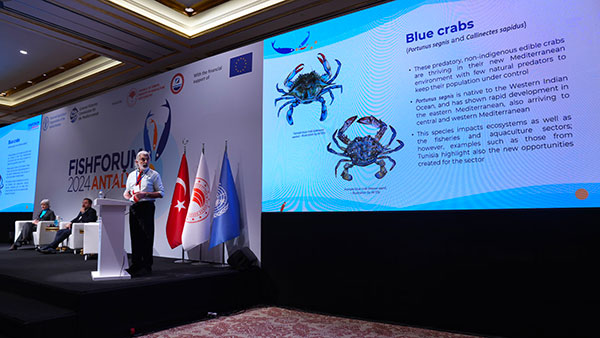
©GFCM/Claudia Amico
Additional cross-cutting takeaway messages
Discussions at Fish Forum 2024, specifically at special events and roundtables, also highlighted the following cross-cutting issues relevant to fisheries science in the Mediterranean and Black Sea region:
- Trust and dialogue among actors at the science–policy interface play a key role in creating the long-term relationships that are necessary for science and policy to feed into each other, and in establishing a mutual understanding of needs, challenges and limitations to enable effective intersectoral action.
- Newly adopted international agreements have an impact on the definition of science and management priorities, prompting the need for better available advice and the efficient implementation of management actions.
- Research institutes play a crucial role in advancing research priorities and issues of common interest, and their cooperation can help to ensure the achievement of shared objectives.
These points will be important when addressing the challenges facing the sector, as they support strong and integrated science to inform sustainable management measures.
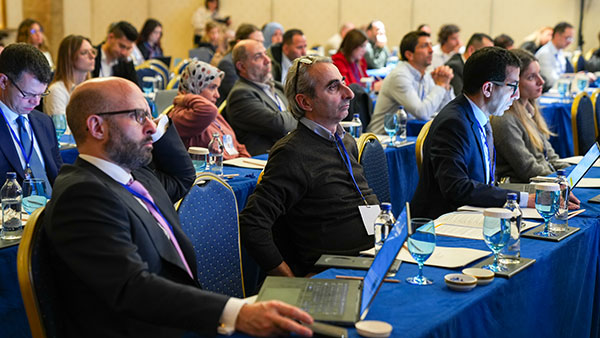
©GFCM/Claudia Amico
Regional networks
Fish Forum 2024 laid the foundation for the creation of two regional cooperation networks. The first network of experts addresses climate change across the advisory process, including how to increase knowledge of the effects of warming seas on regional fisheries and potential adaptation strategies. The second is a network of fisheries research institutes aiming to stimulate cooperation, boost capacity in response to new policy requirements and drive innovation in the region and beyond.
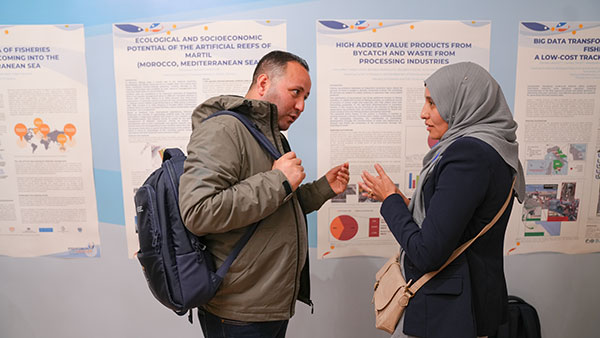
©GFCM/Claudia Amico

